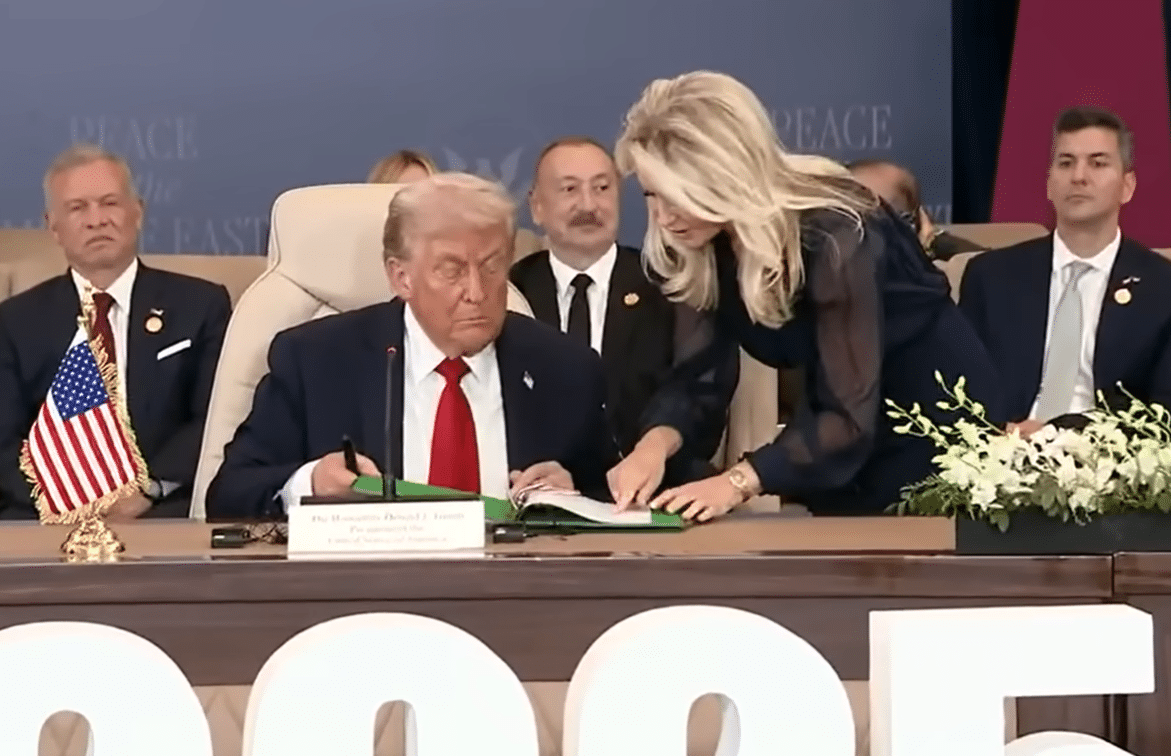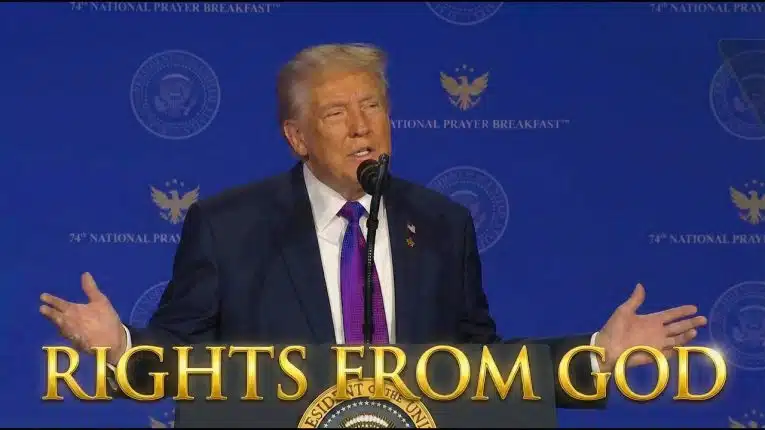
President Donald Trump expertly brokered the peace deal of the century with his historic call to peace in the Middle East under a 20-point peace plan that has already resulted in a ceasefire between Israel and Hamas and the safe return of 20 living Israeli hostages held in captivity for 738 days after Hamas’ raid on Israel on Oct. 7, 2023.
This massive step toward restoring peace in the Middle East is supported by all major Arab governments and includes the return of all Israeli hostages seized by Hamas over two years ago, an opening up of aid into the Gaza region, a transition government without influence from Hamas, and the stabilization and development of Gaza. This is a great stride down the road toward peace and international cooperation in the Middle East, yet many Democrats — in Congress and out of it — are reluctant to give President Trump the respect he has earned for brokering the historic deal.
As the New York Times pointed out in an Oct. 10 report by Reid Epstein, Robert Jimison and Megan Mineiro, Congressional Democrats are walking a fine line on the Israel-Hamas peace deal, unwilling to give President Trump too much credit, but at the same time cautious about angering voters who see the peace deal as a major victory and expect their elected officials to give credit where credit it is due. The report notes that third-party voters, who Democrats will need to court in the midterm elections, will likely view the peace deal as “successful”, and Democrats are treading carefully when speaking about the deal and President Trump’s involvement.
The report added, “The endeavor is all the more tricky given that some voters whose backing Democrats need to win elections — including independents and moderates — are likely to regard a successful Middle East peace deal as a huge win and might sour on leaders who appear insufficiently appreciative.”
Senator Bernie Sanders of Vermont remarked on the peace deal, “I don’t want to give credit right now. We have given, as a nation, billions and billions of dollars under Biden and under Trump to starve children in Gaza. I’m not talking about credit.”
Senator Mark Warner of Virginia, who is Vice Chairman of the Senate Select Committee on Intelligence, issued a statement supporting the peace deal but made no reference to President Trump.
Senator Jacky Rosen of Nevada issued a statement supporting the peace deal but did not credit Trump.
Representative Hakeem Jeffries of New York, the House Minority Leader, praised the ceasefire, but did not mention President Trump’s role or give him credit.
Congresswoman Alexandria Ocasio-Cortez of New York spent the last several days tweeting about healthcare, with no mention of the historic hostage release or peace deal at the time of this writing.
While prominent Democrats have refused to give President Trump credit for brokering a major peace deal in the Middle East that has returned Israeli hostages to their home nation and intends to ensure Hamas and other disruptive factions agree to have no role in the governance of Gaza, the American people have not.
YouGov polling data released Oct. 9 shows most Americans give President Donald Trump significant credit for brokering the peace deal that deradicalizes and develops Gaza. Americans say by 42 points, 58 percent to 16 percent that President Trump played a major or minor role in the peace negotiations, while 25 percent aren’t sure. The largest share of Americans — 34 percent — agree that President Donald Trump played a major role in the peace deal. 63 percent of Republicans and 26 percent of independents say President Trump played a major role in the peace deal, but only 15 percent of Democrats agree. The largest share of Democrats — 36 percent — say President Trump did not play no role at all, but played a “minor” role in the peace deal.
A Harvard CAPS/Harris poll released last week found Americans support President Trump’s 20-point peace plan by twelve points, 56 percent to 44 percent. Just over half of independents (51 percent), 31 percent of Democrats, and 86 percent of Republicans said they were in favor of President Trump’s peace plan to restabilize the region. As polling emerges after the hostage release and as more aspects of the plan are implemented, expect those numbers to go higher.
When the survey informed respondents that President Trump’s peace plan received the support of all major Arab governments, support for the plan rose to 70 percent of the public, with only 30 percent opposing the plan. Learning that the peace plan was approved by major Arab governments led 56 percent of Democrats and 67 percent of independents as well as 87 percent of Republicans to support it.
Restoring lasting peace in the Middle East is a huge order, and we are at the beginning of that process. However, the successful release of live hostages, the support of major governments across the globe, and the current ceasefire between Israel and Hamas as the additional elements of the peace deal are implemented cannot be underplayed. Brokering peace in the region is a massive step toward international stability and reducing human suffering. The way in which prominent elected Democrats are reluctantly embracing the peace deal and ignoring President Trump’s victory in ending the bloodshed is all the proof you need that the Democratic Party does not care about peace or the people first, but about partisanship and power.
Manzanita Miller is the senior political analyst at Americans for Limited Government Foundation.






